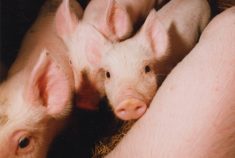The Prairie Improvement Network (PIN) is the new name for what will now be the former Manitoba Rural Adaptation Council (MRAC) as its advocacy role for rural development expands in a post-federal funding era.
Since its formation in 1996, MRAC has administered Manitoba’s share of federal Canadian Agricultural Adaptation Program (CAAP) funding to jump start adaptation activities among farmers and their communities.
The federal government ended that role this past April for the 14 rural regional adaptation councils across the country, announcing plans to centralize the entire program in Ottawa after March 2014.
Read Also

Mazergroup’s Bob Mazer dies
Mazergroup’s Bob Mazer, who helped grow his family’s company into a string of farm equipment dealerships and the main dealer for New Holland machinery in Saskatchewan and Manitoba, died July 6 from cancer.
Last April’s change merely accelerated efforts and planning to expand MRAC’s mandate and move in new directions, said Ted Eastley, executive director of the new Prairie Improvement Network last week.
“We’d started down this road a couple of years ago,” he said. “We’ve wanted to ensure that if the funds were to disappear, we’d have an alternate route and purpose.”
The Prairie Improvement Network’s job ahead is to expand its focus and advocacy work beyond the singular focus of agriculture and play a larger advocacy role in improving the lives of all rural Manitobans, he said. It wants to be a catalyst for innovation and adaptation in a broader number of ideas beyond agriculture, including health, conservation and the environment, he said.
“We’d like to be in a position to pull together these diverse areas. We see ourselves as sort of a catalyst to bring together those various sectors within the rural sector.”
Additionally, Prairie Improvement Network’s work will lie with providing insight on how to bridge the rural/urban split and to engage a broader and more diverse group of rural interests in ways to facilitate positive change. The board, which represents a huge range of perspectives and expertise, is particularly excited about what it can do in that area, said Eastley.
With no confirmed funding, the new network must pursue new research and development innovation funding in both the public and private sectors, he said.
Before its transition to PIN, MRAC has funded more than 600 innovative projects, contributing more than $23 million towards adaptation and innovation. By working with numerous industry partners, including producers, producer organizations, private and public corporations and government, it leveraged an investment of more than $70 million in agricultural advancement in Manitoba.
The Prairie Improvement Network website was activated on Monday, November 26.
For more information visit www.prairienetwork.ca.



















